Goldilocks Arrested
£3.00
Activities in this lesson include looking at the structure of a traditional story, completing a story mountain, writing a tweet, designing a wanted poster and using synonyms.
There is a five-minute evidence-based CPD activity at the end of this lesson which will develop classroom teachers’ skill set. This CPD consists of a research extract on peer assessment with a five-minute activity based on this extract.
Description
These evidence-based learning (EBL) lessons are based on classroom practice that has been proven, by research, to maximise thinking, learning and attainment. From an extensive review of educational research, we identified the eight key classroom thinking and learning skills that were common across these research papers. We named these eight key skills “EBL skills”.
EBL skills have been proven by research to maximise learning because they combine the most productive thinking skills with the most effective learning behaviours. Each of our evidence-based learning lessons uses the English curriculum as a framework through which the eight EBL skills are delivered.
Teachers also have the opportunity to add to their own skill set or refresh their existing skills with our five-minute CPD activity, based on one of the EBL skills used in this lesson.
The skills in bold below are the EBL skills developed in this Goldilocks lesson. Click on each skill to learn more about that skill.
- Collaboration
- Thinking Skills
- Peer Assessment
- Peer Teaching
- Self-Assessment
- Metacognition
- Self-Regulation
- Independent Learning
1 review for Goldilocks Arrested
Only logged in customers who have purchased this product may leave a review.
Related products
-


Cinderella Shows Off Her New Magic Wand
£3.00 Add to basket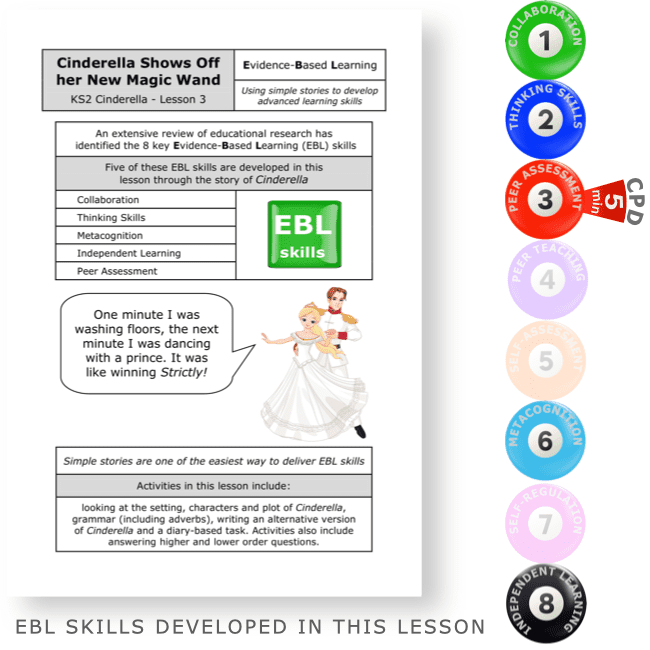 £3.00Add to basket
£3.00Add to basketActivities in this lesson include looking at the setting, characters and plot of Cinderella, grammar (including adverbs), writing an alternative version of Cinderella and a diary-based task. Activities also include answering higher and lower order questions.
There is a five-minute evidence-based CPD activity at the end of this lesson which will develop classroom teachers’ skill set. This CPD consists of a research extract on peer assessment with a five-minute activity based on this extract.
VIEW -
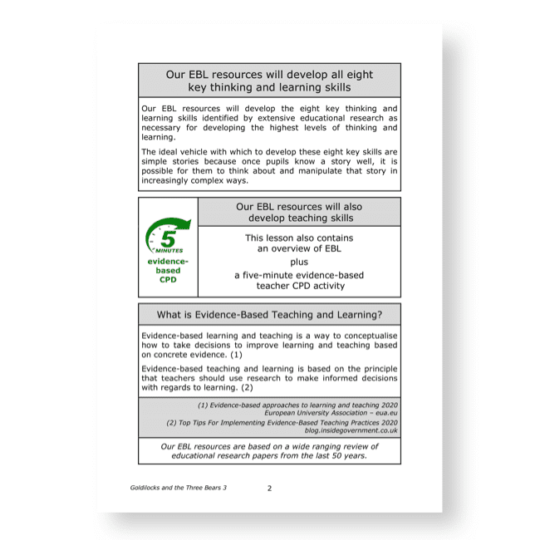
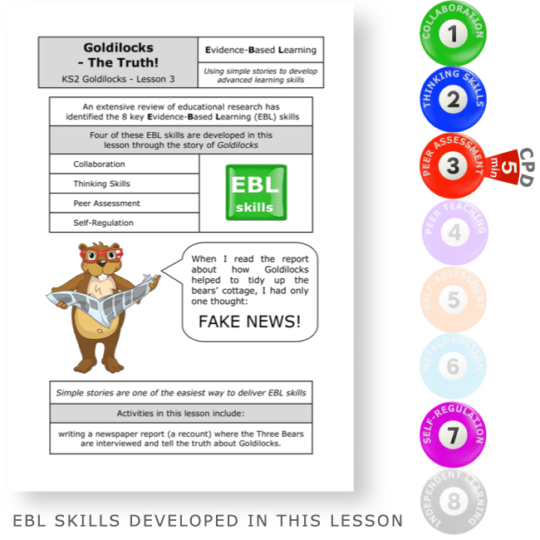
Goldilocks – The Truth
£3.00 Add to basket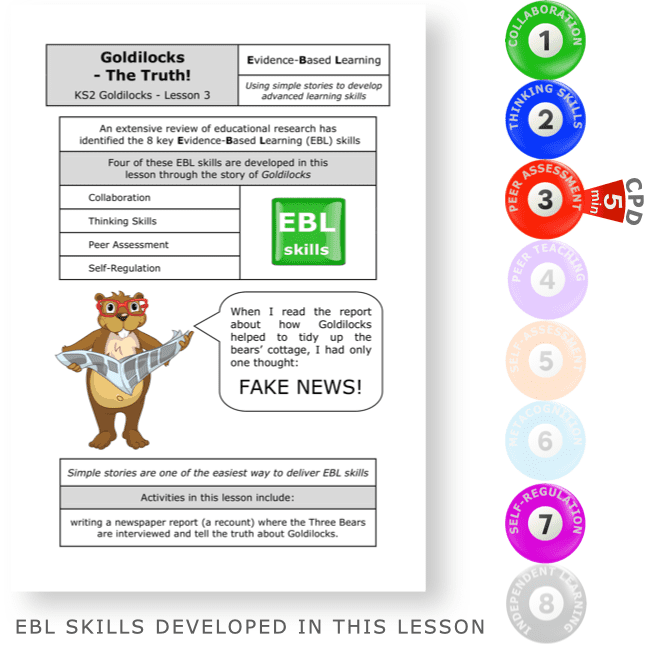 £3.00Add to basket
£3.00Add to basketActivities in this lesson include writing a newspaper report (a recount) where the Three Bears are interviewed and tell the truth about Goldilocks.
There is a five-minute evidence-based CPD activity at the end of this lesson which will develop classroom teachers’ skill set. This CPD consists of a research extract on peer assessment with a five-minute activity based on this extract.
VIEW -
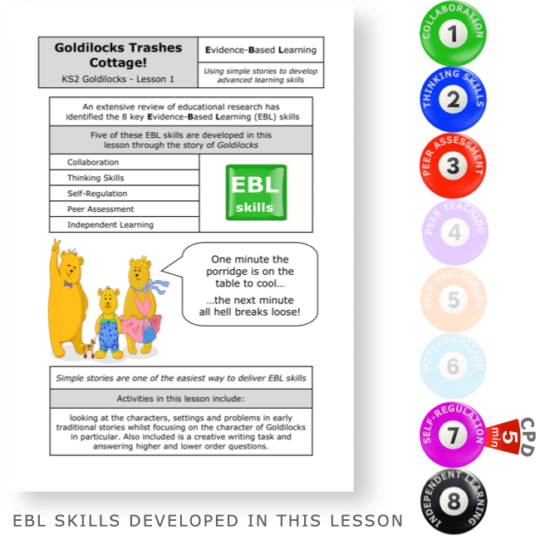
 SAVE 25%
SAVE 25%Goldilocks + PDF
£15.75 Add to basket £15.75Add to basket
£15.75Add to basketSave 25% when you buy all 7 lessons in this series:
- Goldilocks Trashes Cottage!
- Goldilocks Arrested!
- Goldilocks – The Truth!
- Goldilocks Rules OK!
- Stand still Goldilocks!
- First, Butter the Bread!
- Goldilocks Says Sorry!
VIEW -
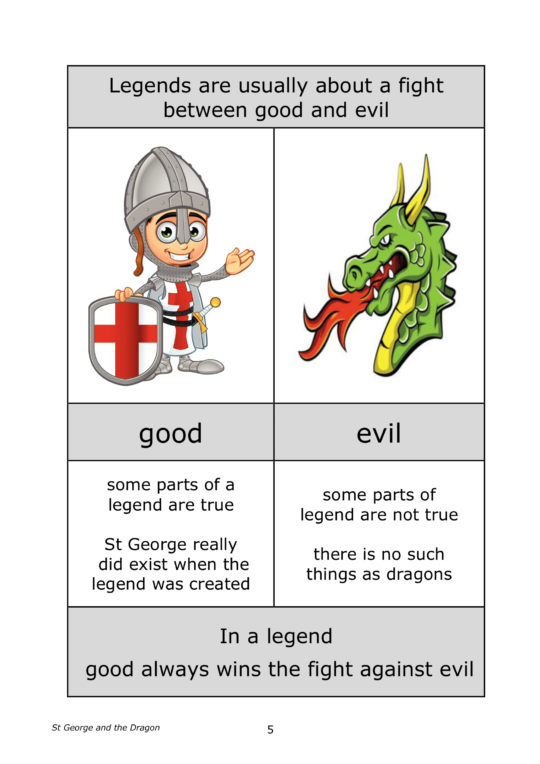
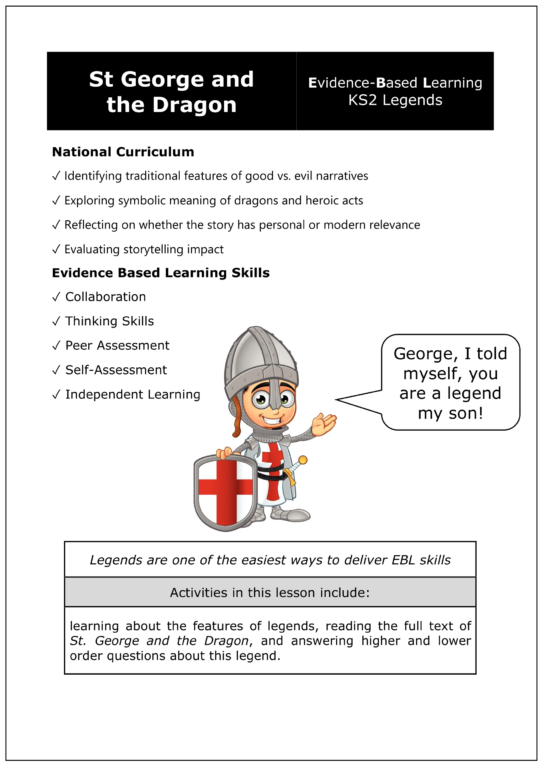
Y5 St George and the Dragon
£3.00 Add to basket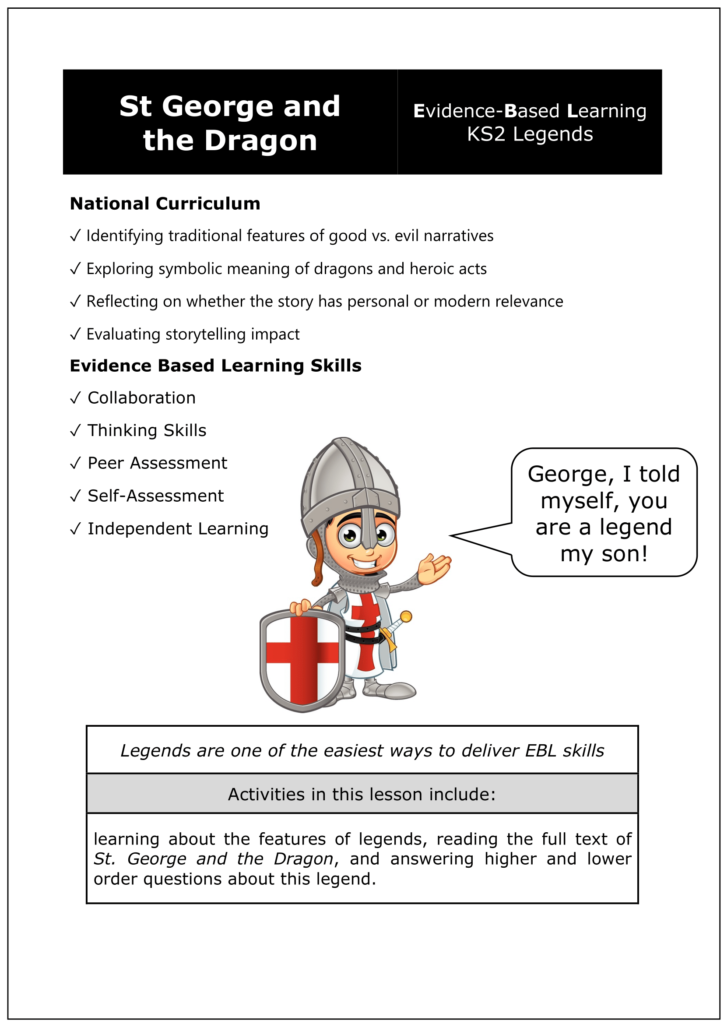 £3.00Add to basket
£3.00Add to basketKS2 National Curriculum:
✓ Identifying traditional features of good vs. evil narratives
✓ Exploring symbolic meaning of dragons and heroic acts
✓ Reflecting on whether the story has personal or modern relevance
✓ Evaluating storytelling impactActivities in this lesson include learning about the features of legends, reading the full text of St. George and the Dragon, and answering higher and lower order questions about this legend.
There is a five-minute evidence-based CPD activity at the end of this lesson which will develop classroom teachers’ skill set. This CPD consists of a research extract on peer assessment with a five-minute activity based on this extract.
VIEW

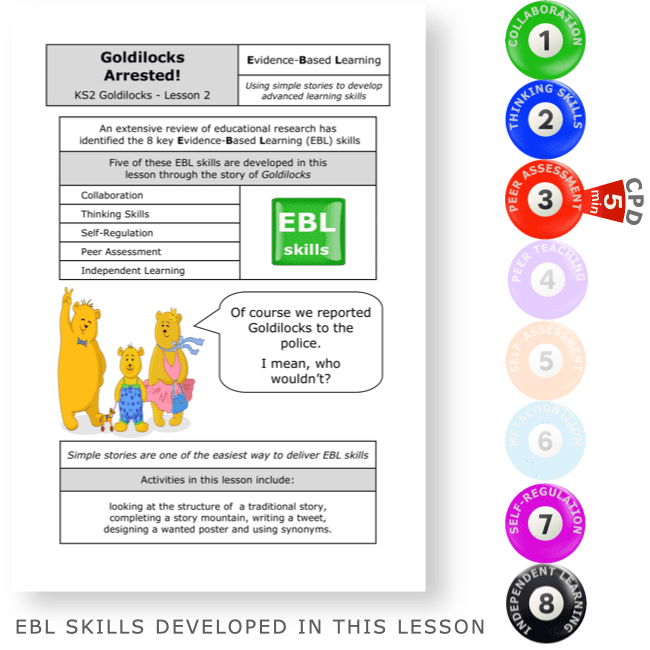
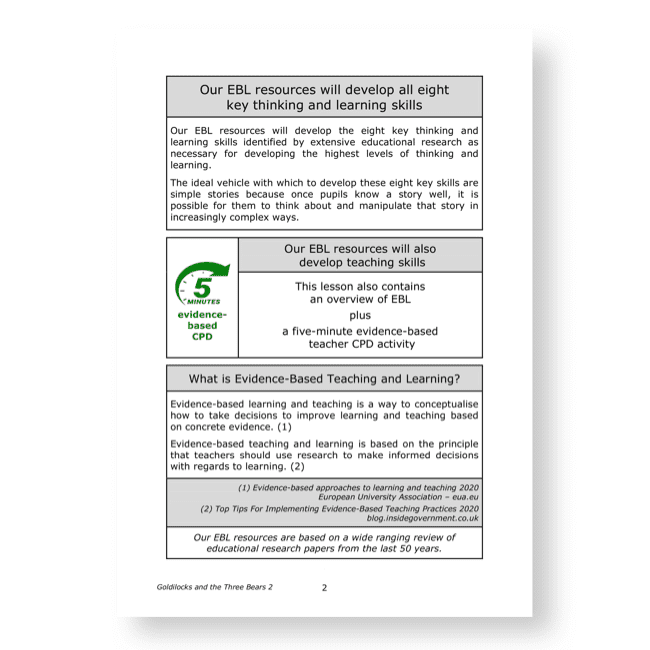






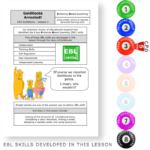
Philipem (verified owner) –
We asked a.i. to review this lesson. This is what it said:
Teaching Literacy Skills Through a Classic Tale
I recently discovered an excellent Goldilocks resource that skilfully teaches key English skills whilst seamlessly incorporating research-backed learning approaches. This engaging KS2 lesson called “Goldilocks Arrested” manages to combine the best of both worlds.
Boosting Literacy Outcomes
Through the memorable story of Goldilocks, the lesson strengthens students’ understanding of traditional tales by examining setting, characters and plot. Activities like story mountains and writing tweets allow pupils to apply their knowledge in fun, practical ways. The lesson also builds vocabulary around synonyms and increases familiarity with the conventions of “Wanted” posters.
Embedding Evidence-Based Strategies
In tandem, the resource incorporates collaborative discussion, self-regulation strategies and meaningful peer assessment. The variety of paired and individual tasks help reinforce these evidence-based skills, whilst their corresponding icons constantly reinforce the specific ability being developed.
Targeted Teacher CPD
The 5 minute CPD activity provides guidance on implementing effective peer assessment, including a research extract and reflective prompt. This supports teachers to monitor if students are transferring assessment skills to improve their own work.
Overall, I would give this resource 5 stars for its ability to seamlessly teach both literacy and key evidence-based competencies. If you’re looking for an engaging English lesson wrapped around research-backed approaches, this is a superb option.